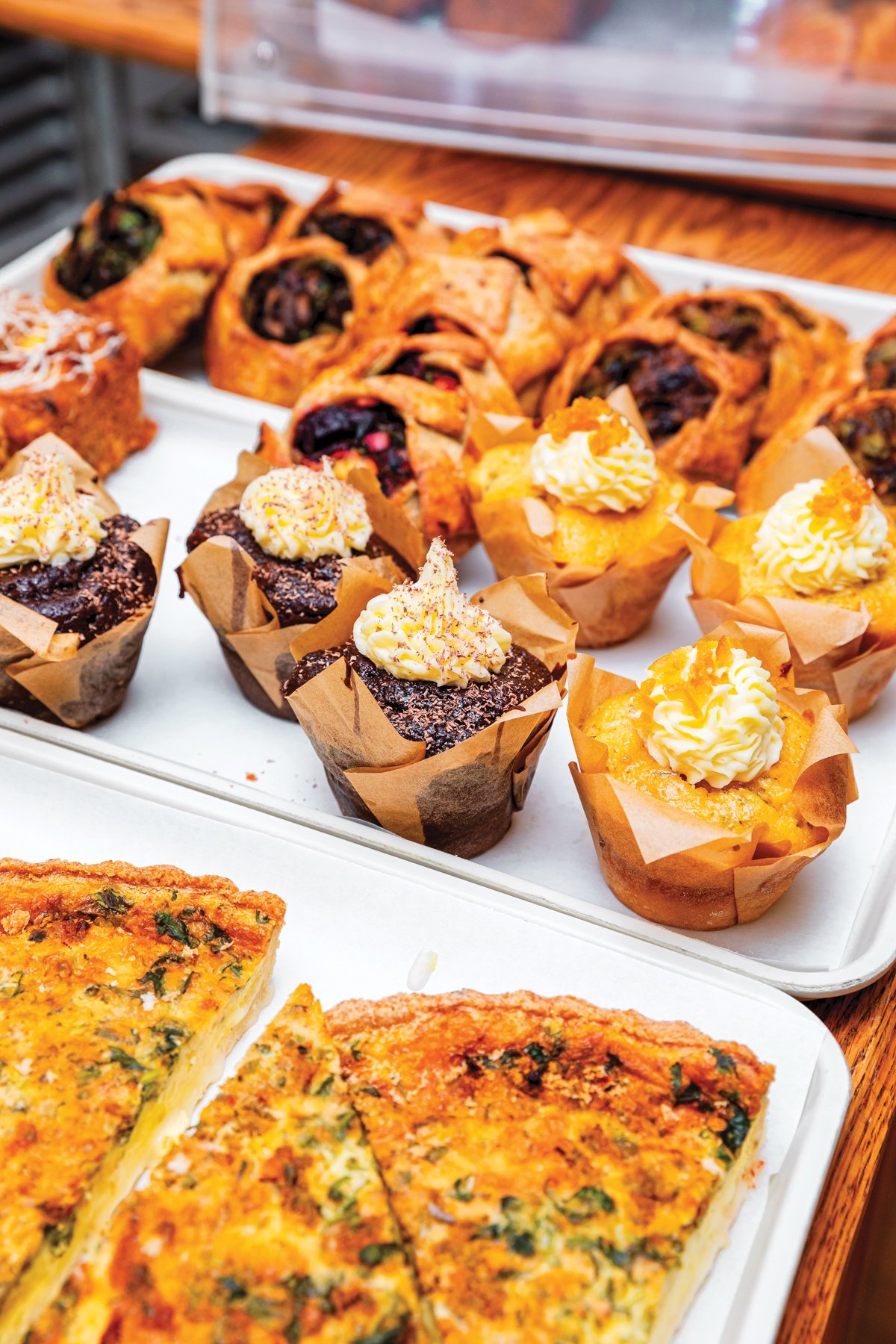
Breaking Bread in SLO County
In a tradition as old as time, people across cultures gather around the dinner table to commence eating with the ceremonial breaking of bread. Though the phrase today no longer means the literal breaking of a rock-hard loaf of wheat as it did in earlier times, the symbolism of this act still unites loved ones and strangers, alike.
Breaking the law
When he first began baking bread from scratch, guided by the wisdom of a Julia Child cookbook he’d read in college, Mark Stambler couldn’t have imagined his new skill would be considered criminal.
Mark, who now owns Pagnol @ Third Street Bakery in Los Osos, got his start in 2012 firing loaves from the backyard of his Los Angles home in a brick oven he’d built with a friend. His simple technique and ingredients — flour, salt and water — yielded surprisingly lush loaves that Mark began selling to customers in his neighborhood. “Word got out that there was a weird guy in Los Feliz making bread that was great,” Mark says.
After winning blue ribbons at the LA County Fair and the California State Fair, he decided to approach restaurant and grocery owners.
“I found a cheese shop and the owner really liked my bread but he wouldn’t sell it because I didn’t have a permit from the county health department,” Mark recalls. Other market and café owners didn’t have the same reservations and decided to sell Mark’s bread. The gamble paid off and loaves sold out daily.
Soon, a reporter for the Los Angeles Times food section was calling. “They wanted to do a full-page spread with pictures,” Mark says.
But the limelight would put a spotlight on bread production that wasn’t exactly legal, which made Mark hesitant to implicate his distributors. But ultimately, he couldn’t resist the offer. “The story came out on a Thursday,” he says. “By Friday, there were health department officials at every one of the shops selling my bread.”
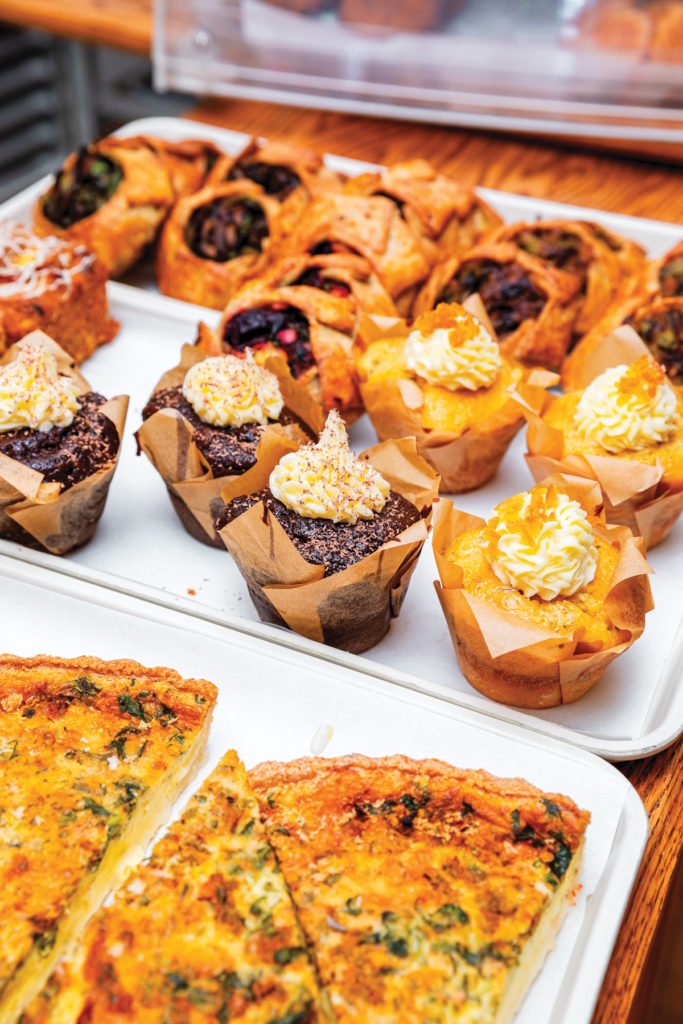
That included Mark’s home, where his wife answered the door to a pair of investigators. This uncomfortable situation motivated Mark to get his business on the right side of the law by changing the law.
“I tried to write my own law with help from the Sustainable Economies Law Center but I had no idea what I was doing and failed,” Mark remembers. After learning of the baker’s plight, L.A.-based California Assemblyman Mike Gatto reached out and helped Mark draft the bill that’s on the books today as California’s Homemade Food Act. The law, which took effect in 2013, has enabled more than 1,200 permit holders to sell their homemade food.
Amid the battle for a cottage food law, Mark and his wife took a trip up the coast and stopped in Los Osos. They fell in love with the small town and befriended the owner of 3rd Street Bakery, which operated out of a quaint blue cottage. When the owner of that bakery passed away, Mark accepted the widow’s offer to buy the building.
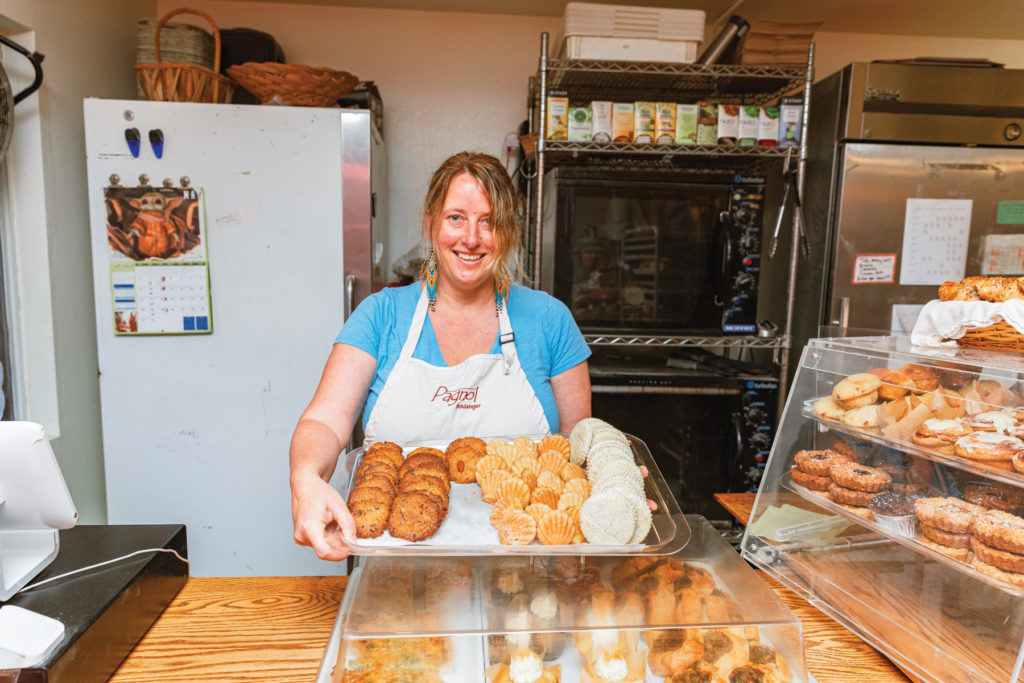
Pagnol, named for Mark’s favorite French writer, now sells classic European-style breads. But Mark doesn’t bake these loaves himself. “I continue baking bread for my L.A. customers but I handed the reins over to a new head baker,” Mark says. “It’s my style and recipe but now I’m a businessman. Looking back on it all, I’m glad I was able to help others get their own businesses started.”
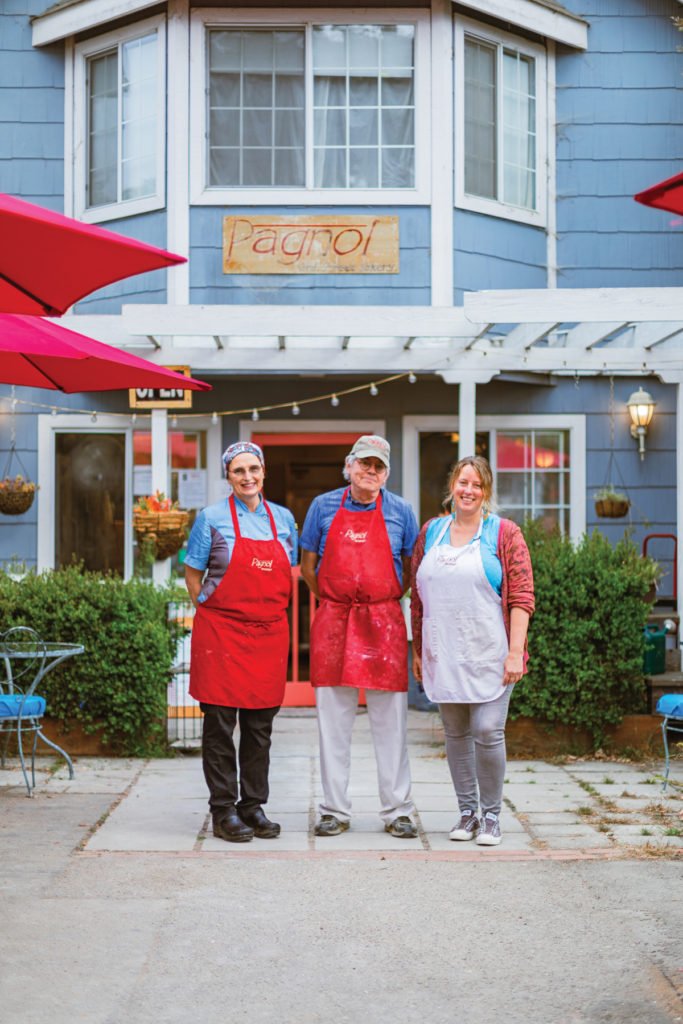
Breaking tradition
When she moved from Montana to San Luis Obispo in the 1980s to work as a defense attorney, Sheila McCann fell in love with the coastal town’s charm. At the same time, she realized the career she’d spent 14 years studying for in law school, including Harvard, wasn’t the right fit.
“I got burned out and wanted to do something more positive,” Sheila recounts. “A judge pulled me aside after I put in my resignation and said I was throwing my life away.”
Though she had no idea how to bake even the simplest loaf of bread, Sheila knew she didn’t want to work a government job so in 1996, she went all in on opening House of Bread. “I bought the shop and hired a consultant to give me a crash course in bread making,” Sheila says. “The consultant was here Friday to Sunday and when I opened the shop all by myself Monday, I ended up in tears.”
Many of the loaves she produced were scorched or undercooked and the ones she could sell sold out before the lunch hour. “I realized I’d opened a bakery without knowing how to bake,” Sheila recalls.
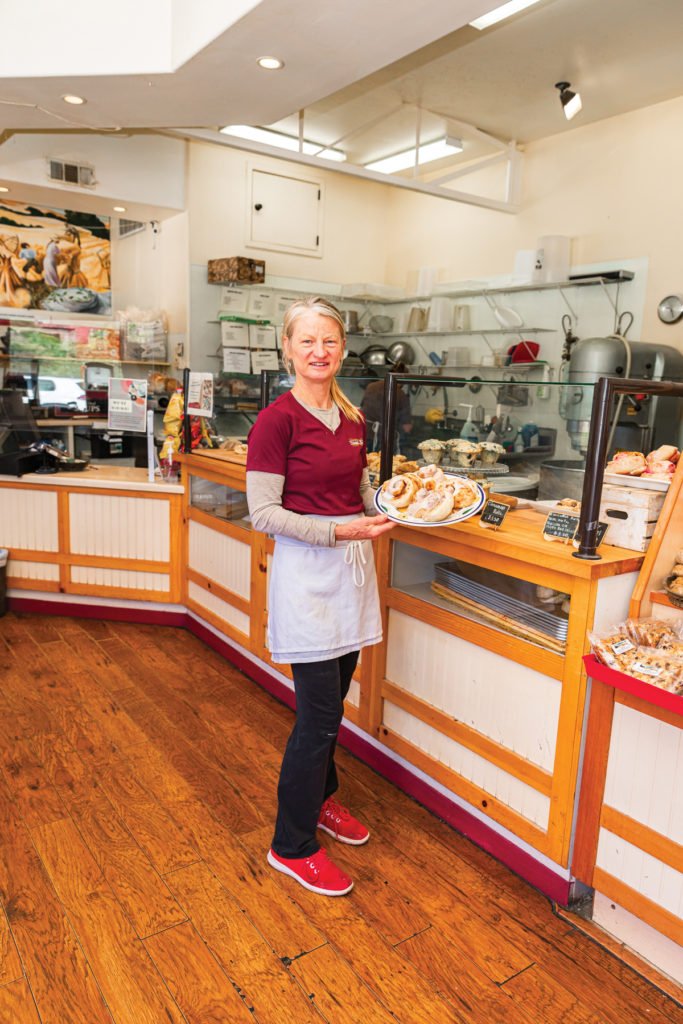
Repeated failures, a sacrifice of ego and hiring experienced bakers enabled Sheila to get this runaway train back on the tracks. With a skilled baking team keeping the shelves stocked, Sheila began refining her ingredients and expanding her offerings.
“We source our grain from Montana because I need double digit protein for the bread to hold together,” Sheila says. “A lot of other bread manufacturers add ‘vital gluten,’ which is an unnaturally high amount of gluten. We don’t add that so we have to source from mountainous regions like Montana, where protein levels are higher.”
In addition to specialty breads like pesto artichoke sourdough and bread pudding, House of Bread sells pastries.

After nearly 25 years at the bakery, Sheila is still pushing herself to learn more and has extended into franchising; House of Bread now has locations in Alaska, California, Nevada and Texas. And thanks to the pandemic, Sheila is now teaching other beginners through her own baking and business podcast called Baking with House of Bread.
“Making bread is so liberating, people have been baking it for centuries,” Sheila says. “I had no idea what I was doing when I started but now, bread is so important to me, it’s always on my dinner table. Meal time is when we all come together and bread helps facilitate that.”


